Boxing is a sport where competitors wearing gloves punch each other to determine the winner. Boxing as an Olympic event, however, differs from professional boxing in that the fights are much shorter, consisting of three rounds each three minutes in length. Sewon Okazawa, who has been selected to compete at the Paris 2024 Olympic Games following his previous appearance at the Tokyo 2020 Games, spoke with us about the appeal of the sport commonly known as amateur boxing as well as his thoughts on the Olympics.
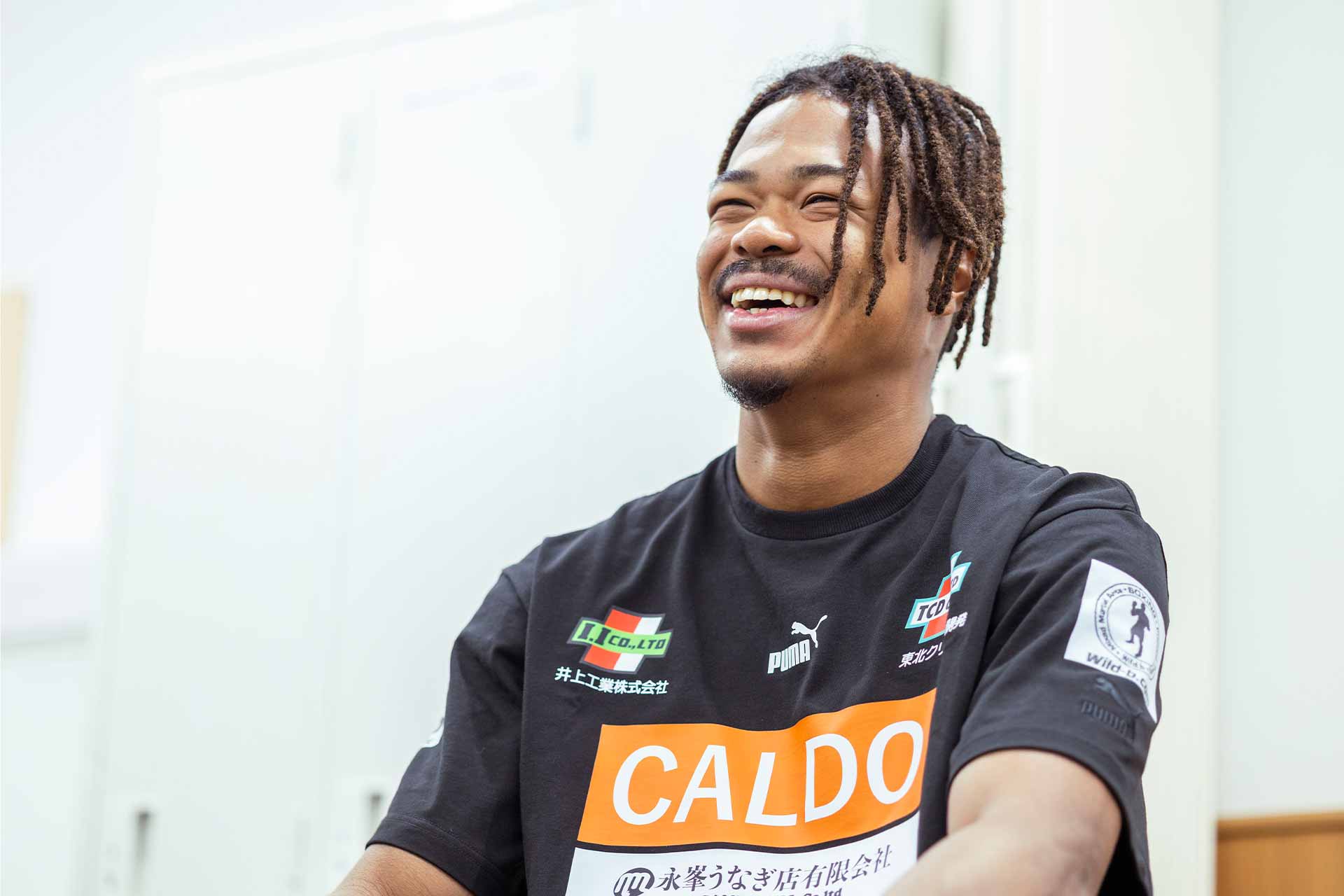
You’ve said that you spent nine years, from 1st grade in elementary school to your 3rd year of junior high, dedicated to wrestling. What spurred you to take up boxing?
“The high school I went to didn’t have an environment where I could keep wrestling, so I thought about joining the Rugby Club or the Track & Field Club. Then, on the day of the entrance ceremony, a strong-looking upperclassman approached me about joining the Boxing Club. I was so scared that all I could do was nod my head. [Laughs]”
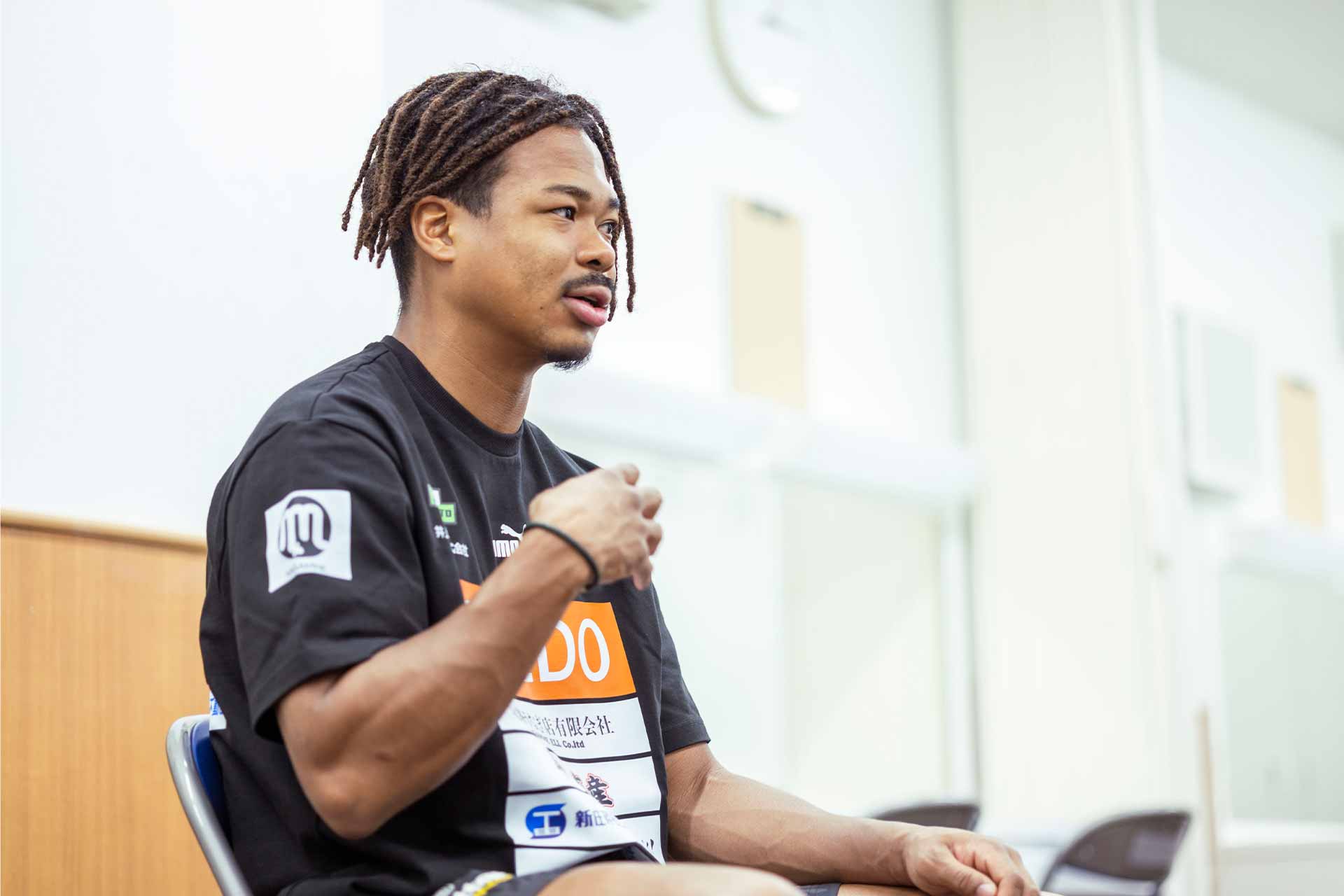
Even though you joined the Boxing Club, apparently your initial impression of boxing was not so good…
“To be honest, the idea of a sport where people beat each other with their fists seemed kind of barbaric. I just thought that the only way to win a match was to beat my opponent as hard as I could. But during practice, our coach would always say to us, ‘Use your head.’ I realized that boxing is actually not so simple; it requires precision and intelligence in every aspect, like how to throw punches, how to defend yourself, and finding the right timing.”
What about boxing do you find appealing, difficult, and exciting?
“What I like best about boxing is that there’s more than one way to win. The boxer with the fastest footwork doesn’t always win, and the same goes for the one with the strongest punches. Some boxers win by being aggressive and knocking down their opponent, while boxers like me win by using their legs to keep from getting hit. There are lots of different styles and ways to win, and while searching for, finding, and then mastering one’s own unique style can be difficult, I think that’s the most enjoyable part of being a competitor.”
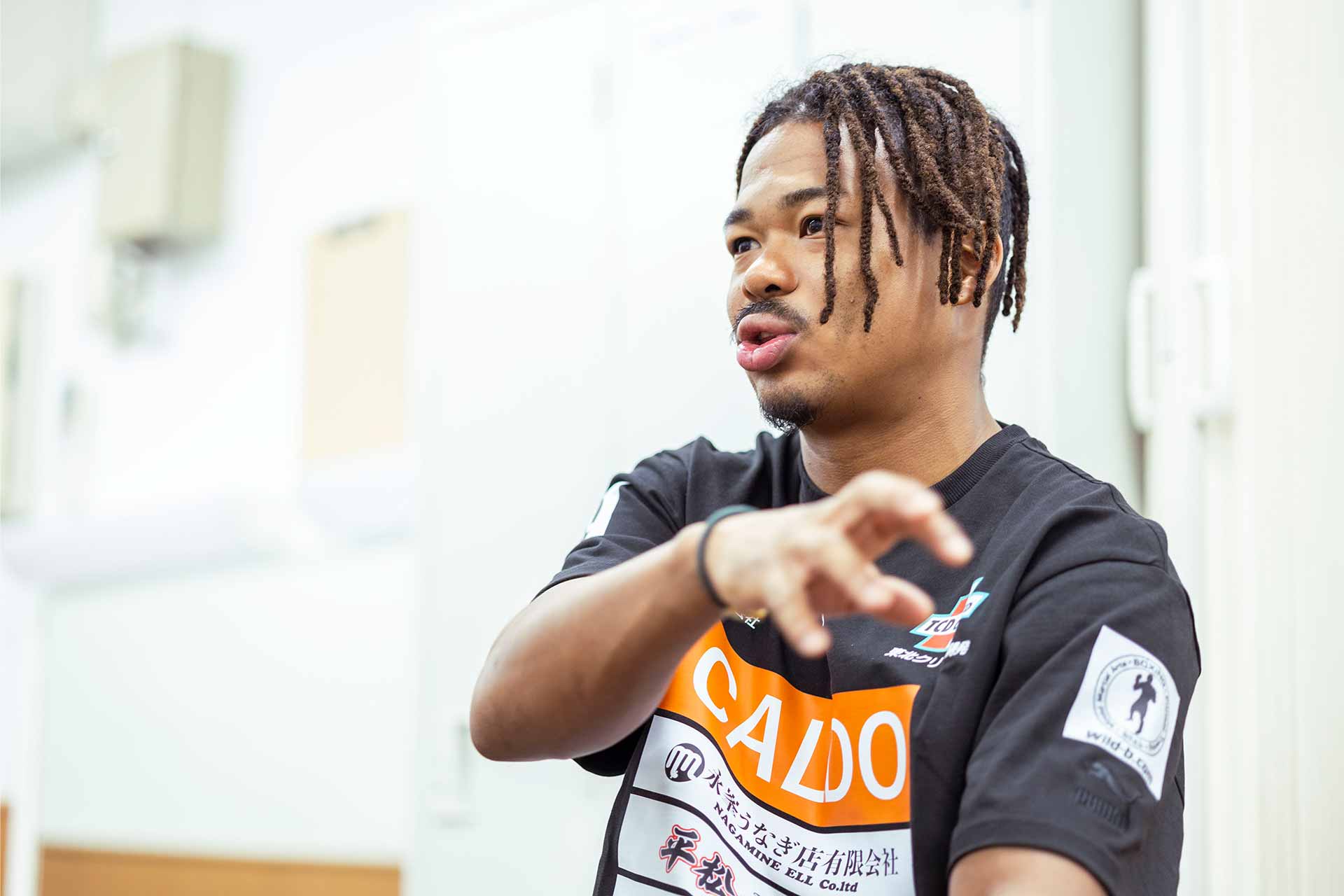
Do you have any fear in you while you’re boxing?
“Oh, of course I do. I’m actually a pretty timid person. [Laughs] But boxing made me realize that it’s when people are afraid that their true nature comes out. In my case, I’m a total scaredy-cat. And I think that’s what drives my style of fighting; I use my feet to avoid taking punches, and that is how I win. Many people think that boxing is just about punching each other, but it’s also important to make your fighting style look appealing. Figure skating is judged in terms of both technical points and program component points. Similarly, boxing is also judged by referees, and one’s tactics – the way they fight – are subject to evaluation by judges as well. The gloves used in amateur boxing make it difficult to get KOs, so in addition to dealing with their opponent, boxers also have to make efforts to appeal to the judges and spectators through their fighting style, which includes aspects such as techniques and tenacity.”
What do you recommend to help spectators further enjoy amateur boxing?
“A regular professional boxing match is twelve three-minute rounds, while boxing in the Olympics and other events is much shorter, usually three rounds that are three minutes long. But this brevity makes the speed of a match one of the highlights, from the quickness of the steps and number of punches to the way that attacks and defense develop so quickly. Also, in amateur boxing, the number of effective punches a boxer lands is the key to victory. While you’re watching, if you count what you think are the good hits, you can figure out who’s in the lead, or if it’s seesawing back and forth, you can enjoy keeping score as they fight.”
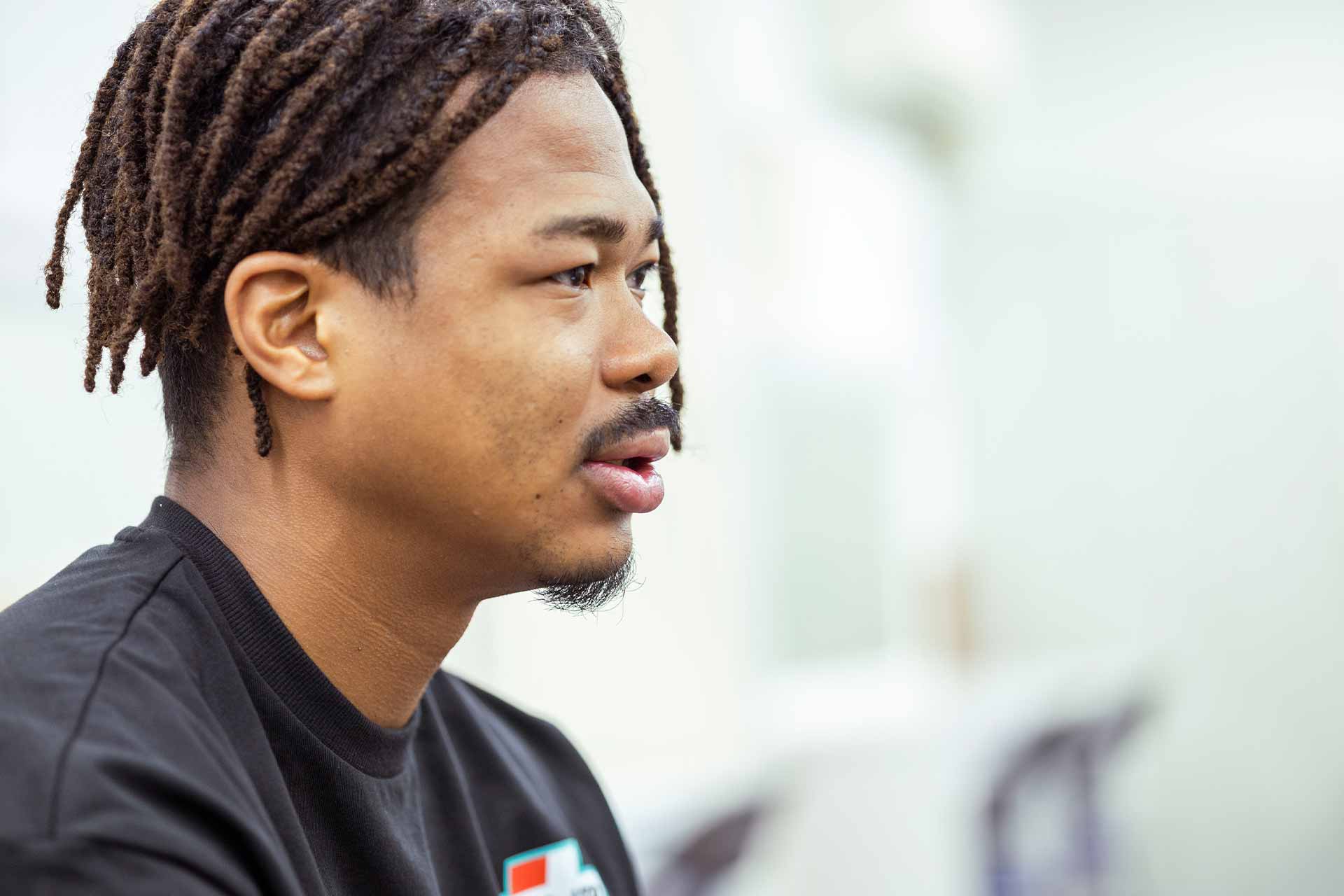
You competed in the welterweight division at the Tokyo 2020 Games. What was your experience like at the Olympics?
“I believed that I would be able to win a medal, and everyone around me also had high expectations for me, so it was a real disappointment to have lost in the second round of fights. I still feel like I didn’t meet the expectations many had for me at that time. I was training every day and trying to make myself stronger, and at that time I definitely was strong. That, I’m absolutely sure of. However, there were other boxers there who went into their Olympic bouts with stronger feelings than I did. It’s all about whether you can be in peak condition for a period of just two weeks once every four years. My disappointing result actually ended up being a big help because it helped me figure out the issues I needed to tackle: my ability to adjust.”
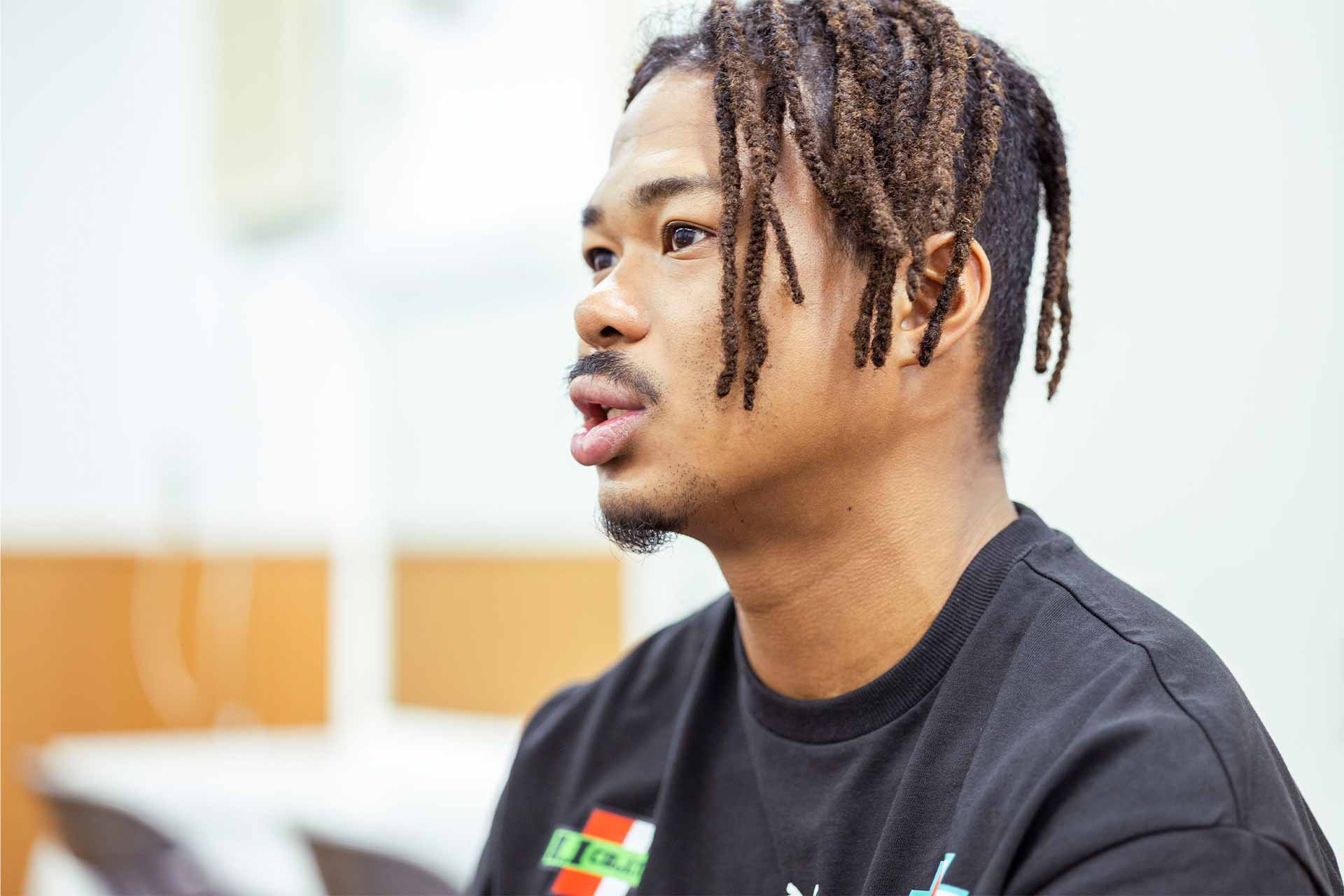
About three months after the Tokyo 2020 Games, you became the first Japanese boxer to win a gold medal at the 2021 AIBA Men’s World Boxing Championships. I’m sure that must have been a moving experience for you.
“I went into that tournament determined to come back with the gold so I could make everyone that had supported me feel like it was worth it for them. It was definitely a satisfying experience, but at the same time the feelings of regret from the Tokyo 2020 Games keep coming back. Even if I win the gold at the Paris 2024 Games, I’ll probably never forget that disappointment, and actually I think I never should forget it.”
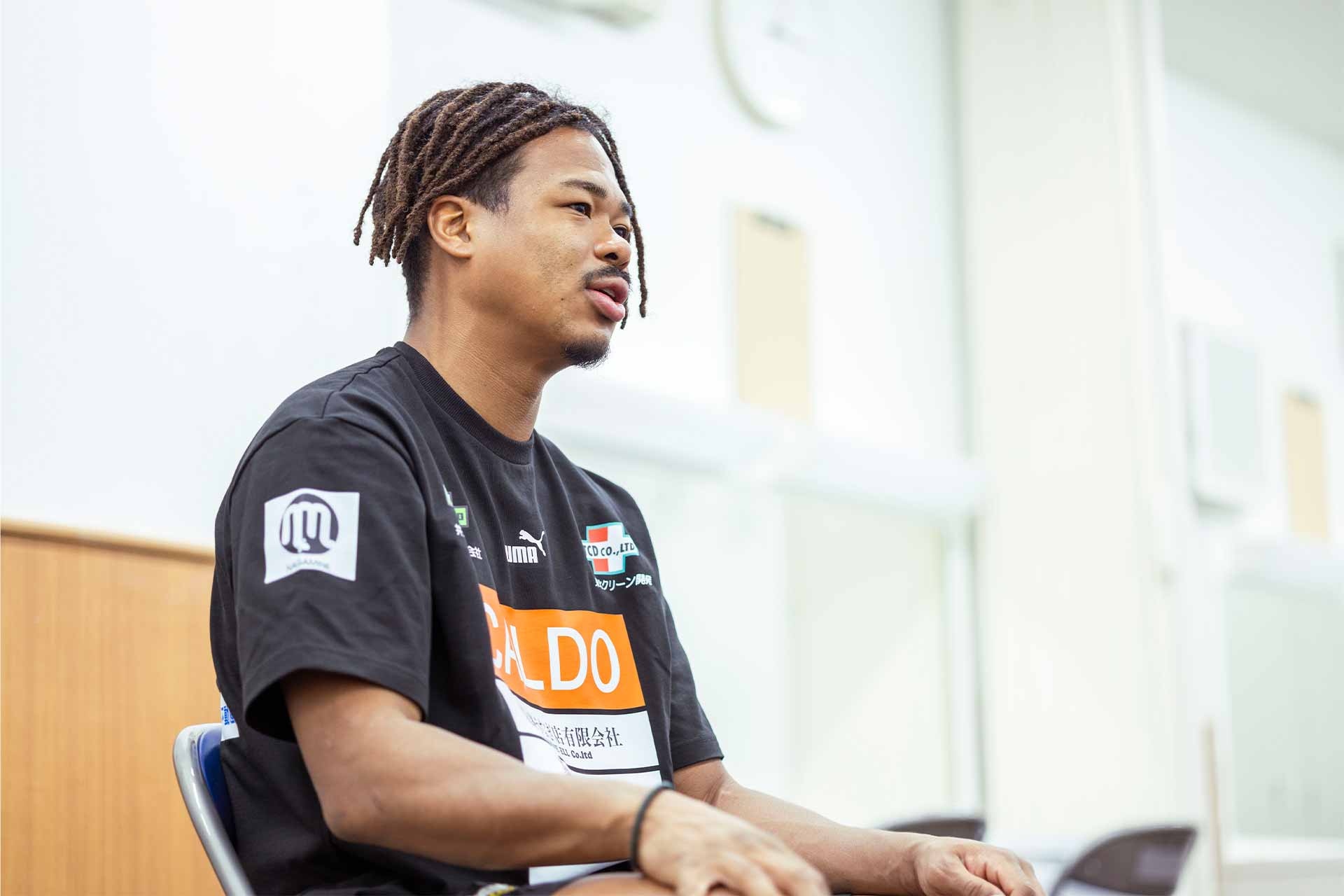
Having experienced disappointment at the Tokyo 2020 Games, the Paris 2024 Games are fast approaching…
“I just have to stay focused on doing the things I need to do. I’ve moved up to the 71kg division, but I’m not worried about it at all. I’m not particularly nervous about it or anything, and I know that if I do my best I can get the gold, so I’m putting everything I have into training hard.”
It’s been three years since your last Olympic appearance. In what ways do you feel you’ve grown as a person?
“At the Tokyo 2020 Games, I was running more on momentum than anything else. But now, I feel that I’m much more grounded, I have a firm grasp on what I need to do to win, and I have a clear vision in my mind that if I follow through with it, I can get the gold medal. I don’t have any sense of worry, and I’m more excited about the Games than I am nervous. Also, I think I may be stronger now than I ever have been at any point in my life. On top of that, I can also take comfort in knowing that I have the support of so many people, including Shunya Aratake, the leader of my gym who’s been there for me ever since I graduated from university and relocated to Kagoshima Prefecture, as well as my sponsors. One of the reasons I have to win the gold at the Olympics is to reward them for everything they’ve done, and also to shine more light on the world of amateur boxing. I’m going to stop at nothing until I make it to the top, and then show off my gold medal to everyone.”
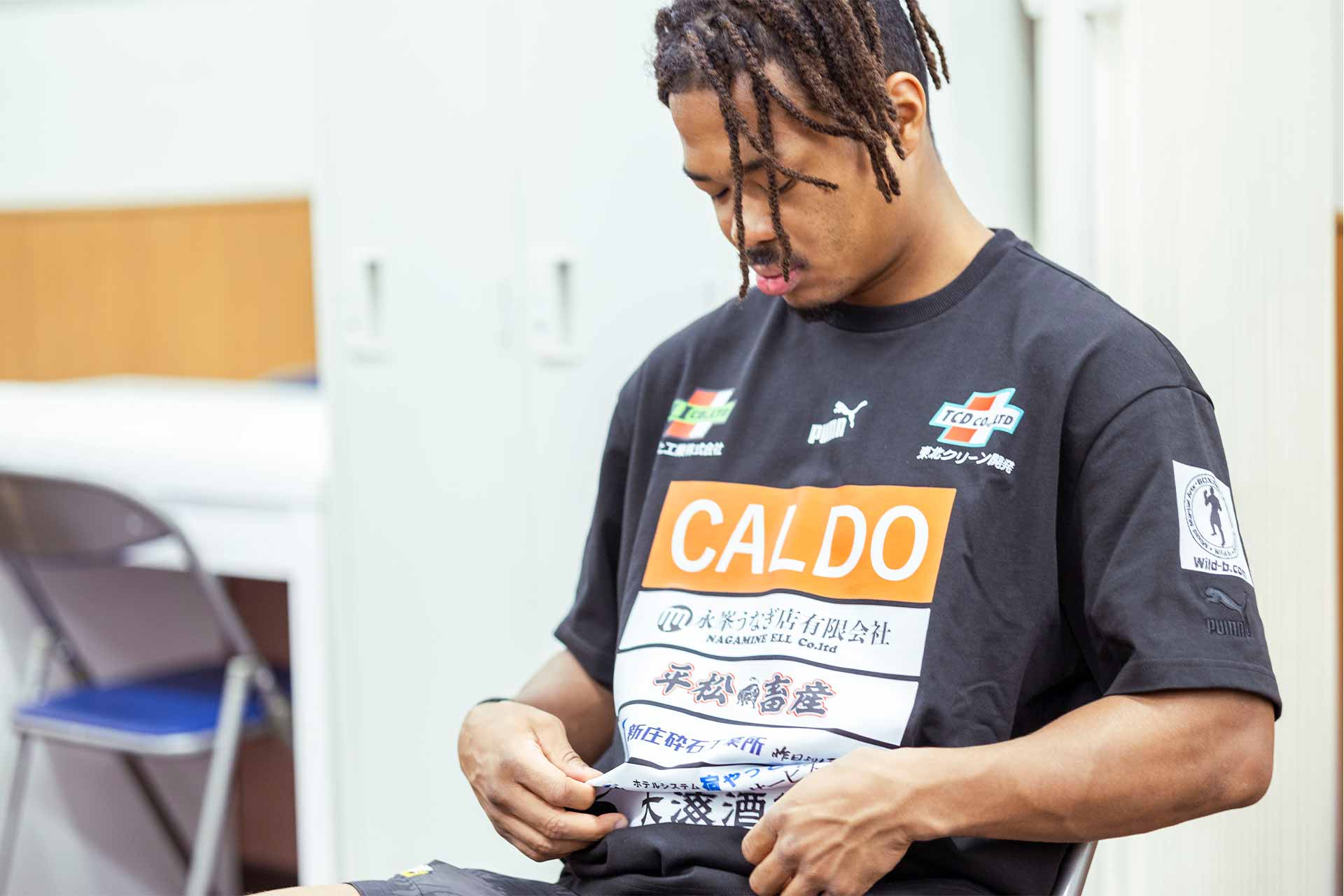
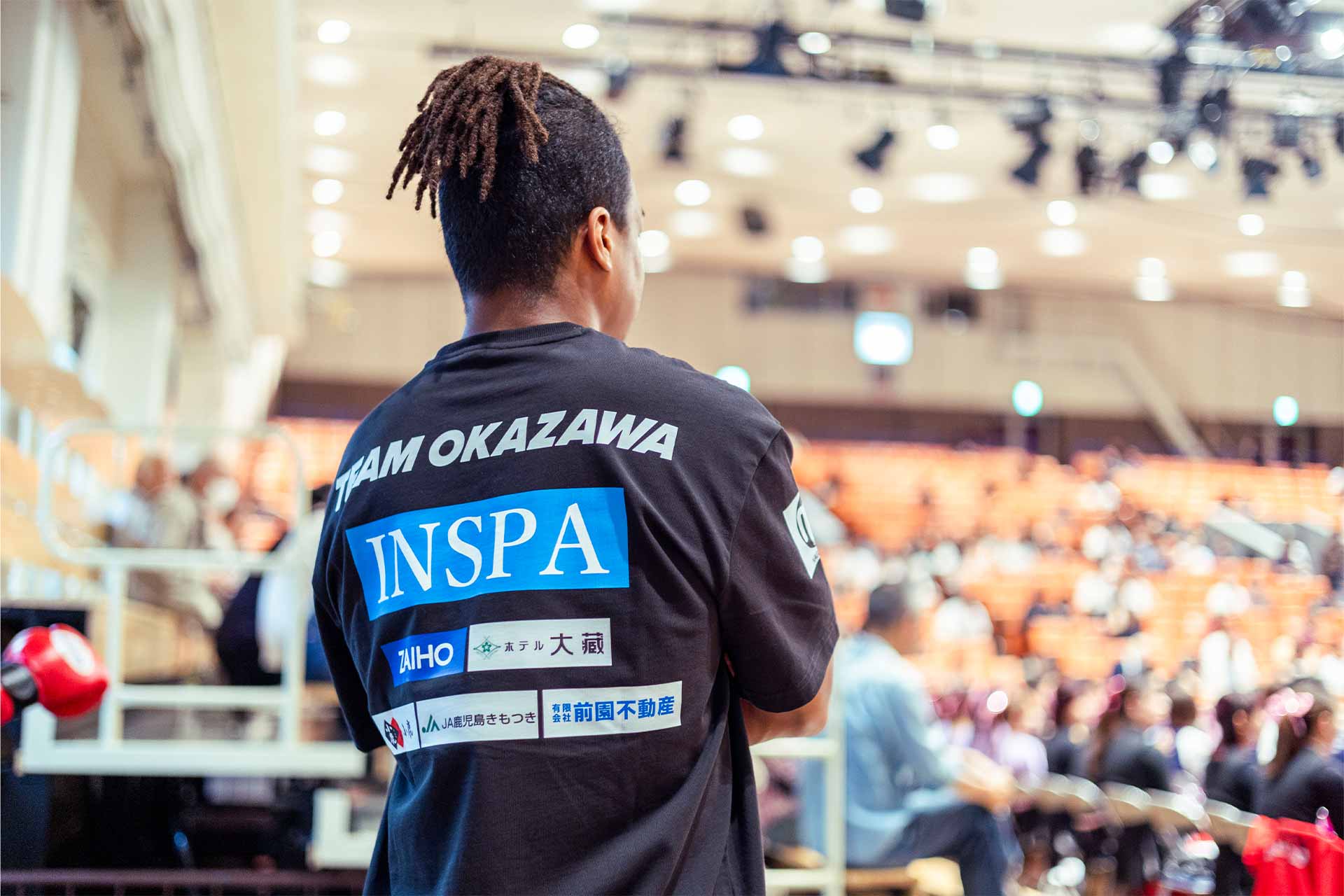
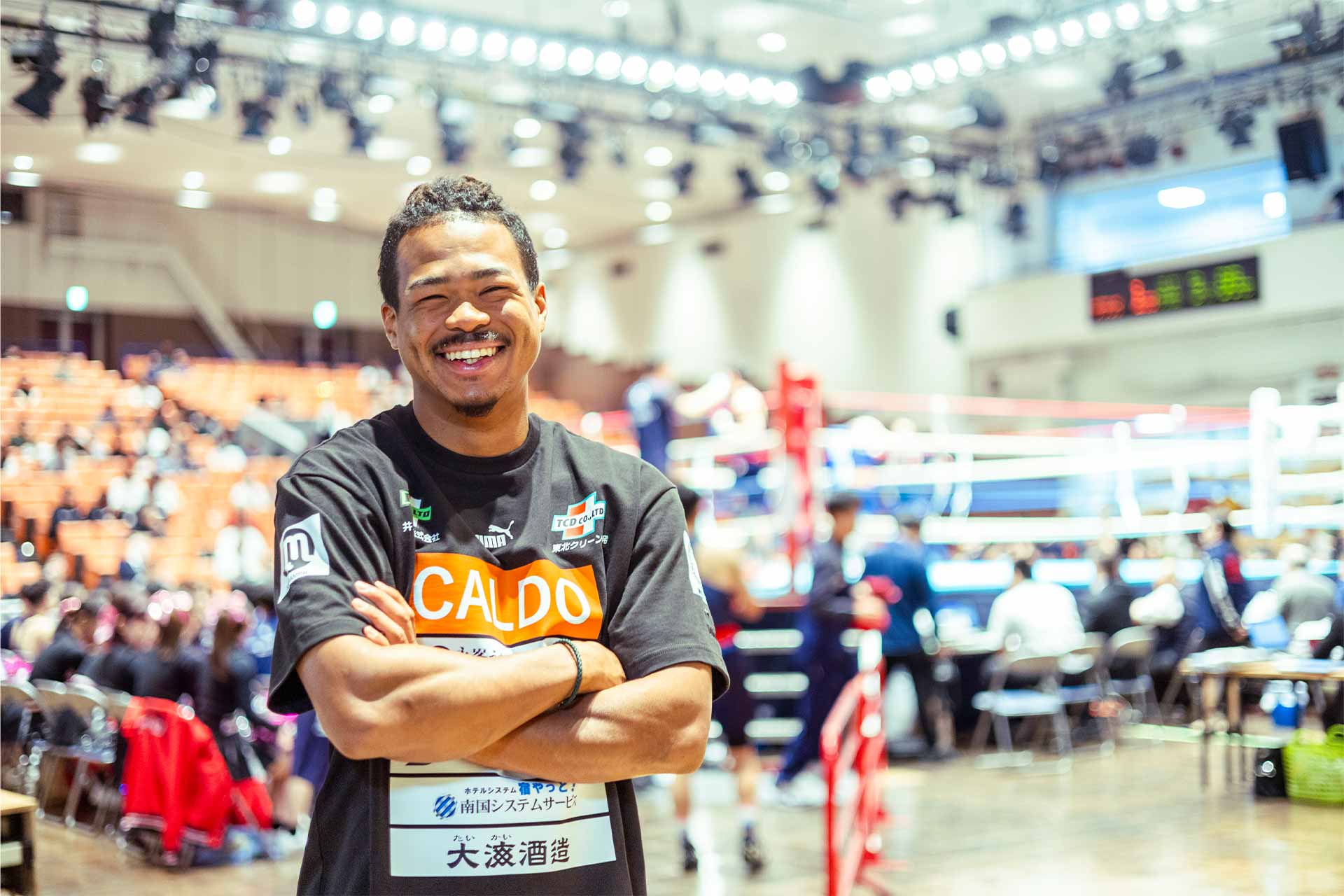
Before relocating to Kagoshima, you spent your college years in Tokyo. Where in Tokyo do you recommend as a place people should visit?
“Korakuen Hall is known as a mecca for martial arts, so I want people to go there to see a boxing match. It’s located in Tokyo Dome City, which also has a lot of other facilities where you can enjoy sports. You can watch baseball at Tokyo Dome and also go bowling, play table tennis, and do indoor roller skating. After playing sports, you can relieve your fatigue in a hot spring or sauna, and then enjoy delicious foods from a wide range of culinary genres. You can spend a whole day there and not get bored, so I highly recommend it.”
<Profile>
OKAZAWA Sewon
Born in Yamagata Prefecture in 1995. Began boxing as a student at Nihon University Yamagata Senior High School, and in his third year won the lightweight championship in the high-school prefectural tournament and placed 5th in the high-school national tournament. In his 4th year at Chuo University, he was runner-up at the National Sports Festival. After graduating from university, he relocated to Kanoya City, Kagoshima Prefecture. In 2019, he won the silver medal in the welterweight division at the 2019 ASBC Elite Boxing Championships. Participated in the Tokyo 2020 Olympic Games in the welterweight division. In 2021, he was the first Japanese boxer to win a gold medal at the AIBA Men’s World Boxing Championships. In 2023, he reached the finals at the Hangzhou Asian Games and secured a spot on the Japanese Olympic teams to participate in the 71kg division at the Paris 2024 Olympic Games.